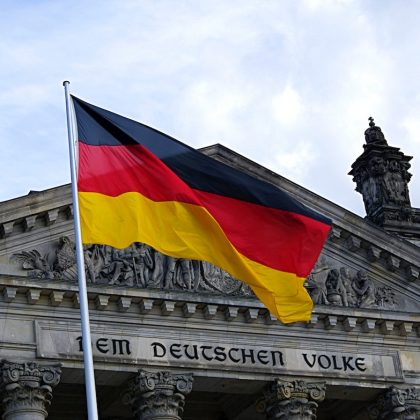The World of Mr Casaubon
The world waits on tenterhooks to discover what kind of leader President-elect Trump will be. Will Trump’s statecraft involve a straightforward implementation of his somewhat preposterous campaign promises? Or will a cynical Trump – now safely elected – turn out to be a more conventional politician than his rhetoric suggested? Perhaps, Trump deliberately said one set of things to court the votes of ordinary people, while intending to do something rather different. This notion – the double doctrine, saying one thing for public consumption but believing something else entirely – is one of the central themes in my new book, The World of Mr Casaubon: Britain’s Wars of Mythography 1700-1870. The book is a kind of detective story, which takes as its point of departure a fictional character, Mr Casaubon in George Eliot’s classic novel Middlemarch. Casaubon is at work on a great book, The Key to All Mythologies, which is unfinished at his death. My own book attempts to reconstruct the arguments of this famous non-existent book, by excavating the arguments of eighteenth- and nineteenth-century mythographers.
Among the central themes of mythological study in this period is the recovery of the double doctrine as practised in the cultures of classical Greece and Rome. Why, it was asked, did these great civilizations develop philosophies of striking sophistication yet also bodies of mythology full of absurdity, nonsense, and lashings of gratuitous sex and violence? Surely those Greeks and Romans who were adepts of the ancient philosophical schools did not believe in these fabulous tales of gods and goddesses? One plausible solution held by mythographers in the eighteenth century was to suggest that the elites of ancient Greece and Rome subscribed to a double doctrine: that they encouraged the idle fancies of the common people by inculcating a folklorish mythology, while in secret subscribing to a set of beliefs which advanced a simple, more plausible and much less extravagant account of deity. It was commonly argued by eighteenth-century admirers of the classical world that the ancient mystery religions had been cults of precisely this sort, inculcating a higher truth to their initiates than that promulgated by the ordinary religions of the time to the common people.
The World of Mr Casaubon also analyses various other strategies in the study of mythology, as well as exploring the high profile enjoyed by mythographical debate during the era of the French Revolution, when radical French deconstructionists contended that Christianity itself was no better than a kind of mythology. Ironically, conservative Anglican mythographers replied that pagan mythology was itself a compelling evidence for the truth of Christianity. Everywhere one looked in the realm of mythological tales one encountered legends of serpents, tales of great floods, and so forth, which were clearly – so it was argued – derived from the great happenings described in the early parts of the Book of Genesis. Heathen myth, as it seemed to late eighteenth- and early nineteenth-century Christian mythographers, proved Christianity true. To us, this now seems strange and absurd, though perhaps no less strange and absurd than a Trump Presidency. Let us hope, in cynical optimism, that the double doctrine still has its acolytes at the heart of the Trump White House.






